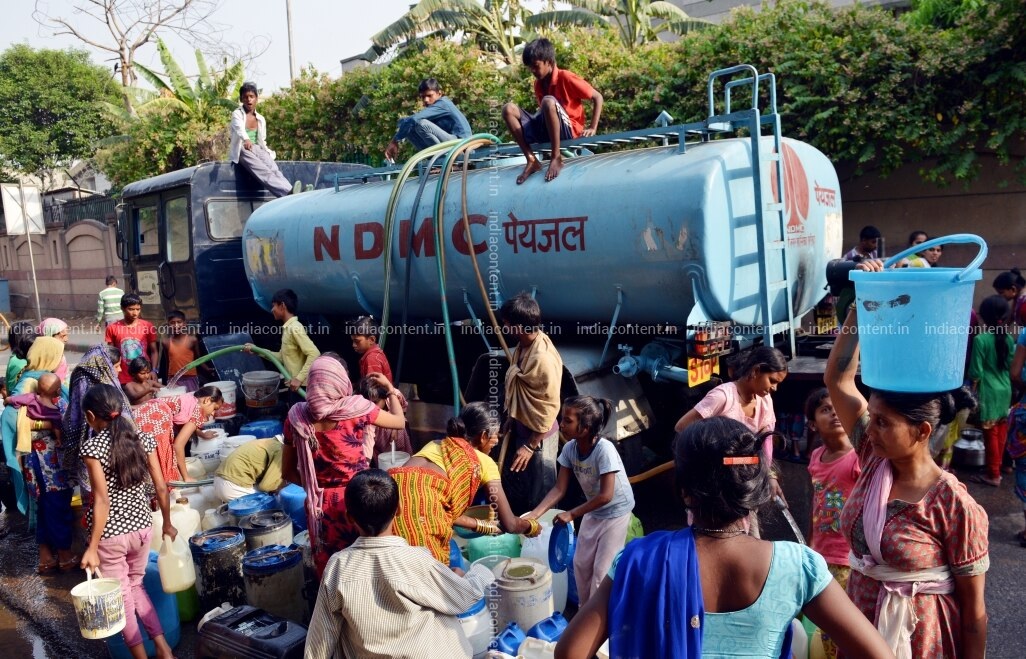
The National capital and the heart of the country, Delhi is graded at the basal of the list, based on the tap water quality released by the BIS (Bureau of Indian Standards) recently. It is the poignant situation for the capital after becoming a world’s most polluted city, and now the study has revealed that the tap water in Delhi is the most unsafe among 21 State capitals.

Union Minister Ram Vilas Paswan has retaliated at Delhi Chief Minister Arvind Kejriwal in squabbling battle of words over the ‘inferior’ quality of drinking water in the national capital. The controversy amongst the two leaders was sparked after the release of the BIS reports that pronounced that the tap water in Delhi, Chennai and Kolkatta broke down 10 of 11 criterions and did not meet the Indian Quality Standards. The Consumer Affairs Minister, Paswan firmly revoked Kejriwal’s assertions that the information was fraudulent and politically motivated. He confronted the AAP chief to call for the official team to assess the drinking water in the city state.
Delhi Tap Water Unsafe
After the survey conducted in 20 state capitals, Mumbai was the only city found to comply with all the 11 criterions, while other cities did not match with one or more categories. Ten samples of tap water in Mumbai was considered as the safest water for drinking. While addressing a press conference on Saturday, Paswan told that Delhi’s samples have failed in the government safety test conducted by the Department of Consumer Affairs with 11 out of 11 samples in 19 criterions. Delhi has been drinking the most unreliable water which can be the cause of multiple health issues of Delhi inhabitants.
The reports revealed that most of the samples broke down on criterions of total dissolve solids, total hardness, total alkalinity, turbidity, minerals and metals, and presence of coliform and E Coli, which can be the major concern of serious ailments. Irrespective of the fact that the several cities including Gandhinagar, Chandigarh, Patna, Jammu, Lucknow, Chennai, Bengaluru and Dehradun are amongst the cities where the tap water quality has found below average, the water supplying agencies across the cities have also been unsuccessful in providing potable tap water, which is the basic right for living.
Kejriwal’s government confronts attacks by the BJP government due to the looming war over water quality standards in the national capital. They have already been facing air pollution crisis ahead of the slated Assembly Elections for next year. BIS Officials revealed that the piped water also did not abide by the quality norms
There were many posters circulated in the capital censuring the AAP government forcing public to drink ‘toxic’ water. Livid Arvind Kejriwal, who is also the chairman of Delhi Jal Board, pronounced that the water quality norms cannot be concluded on the basis of just 11 specimens. He added, the Union minister Ram Vilas Paswan is not disclosing the areas from where the samples were collected. He further said that he would collect the samples from each ward of the city, get it tested and then present the data in public.

Paswan addressed in the Lok Sabha during Zero hour acknowledging the Chairman and Chief Minister’s critiques and warned the parliament that Prime Minster Narendra Modi under its flagship Jal Jeevan Mission had called for the quality of potable and safe water in the national territory to be promised by 2024.
In his last Independence speech, he pledged to put in over Rs.3.5 lakh crore on the scheme. He also discharged the accusations of political guidance in the matter. Instead, they were seeking Parliament support over the severity of water crisis.
The Ministry has requested the State Government to form a harmony on making the Standard mandatory. The BIS standard includes 48 different criterions. But Specimens are being examined under 28 criterions so far, ruling out criterions related to radioactive substances and free residual chlorine. Physical and organoleptic tests (which identify odour, turbidity and pH levels), chemical tests (which identify toxic substances, pesticide residue and excess metals) and virological, bacteriological and biological tests (which identify harmful organisms and disease carriers) of specimens are going through.
The Centre aims to bolster the scope of the analysis and bring the capitals of the northeastern states and all 100 smart cities under the testing establishment by January 15, 2020 and all the district headquarters are projected to be examined by August 15, 2020.

Delhi Water Crisis Images on India Content Website
India Content has a good stock of Delhi Water Crisis Images on the website. The images are available in three sizes – small, medium and large.

